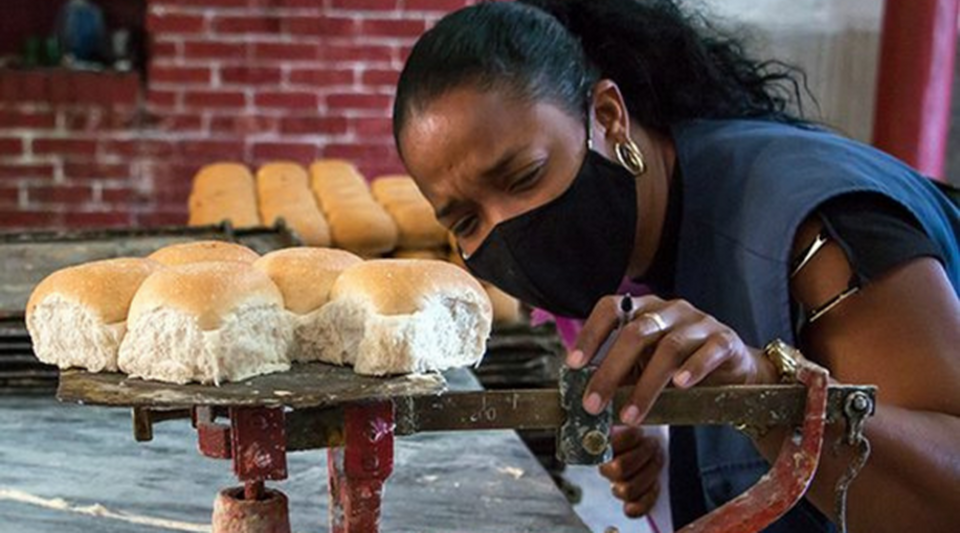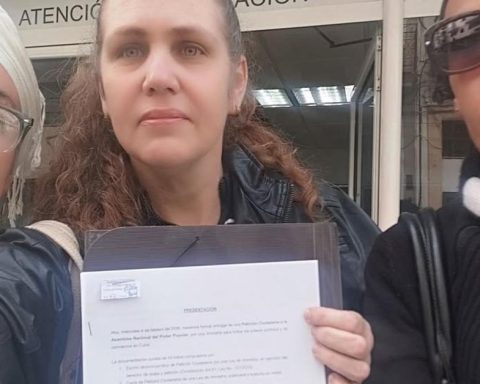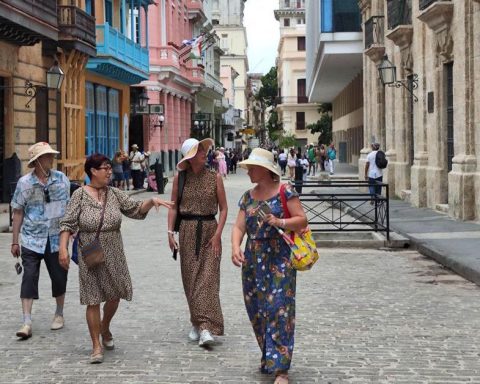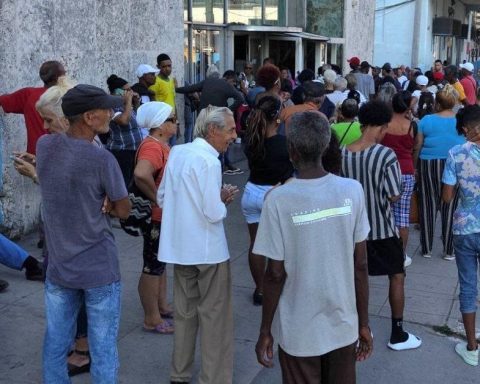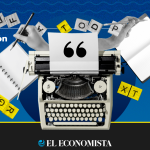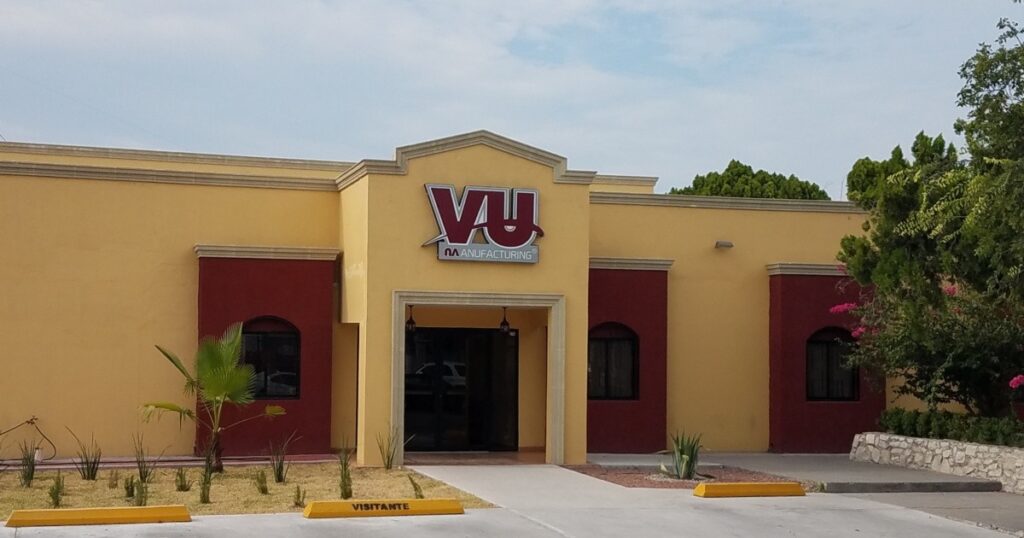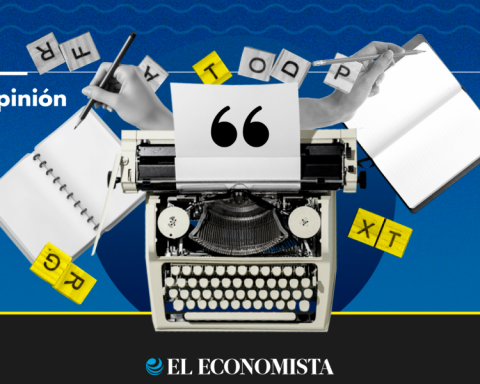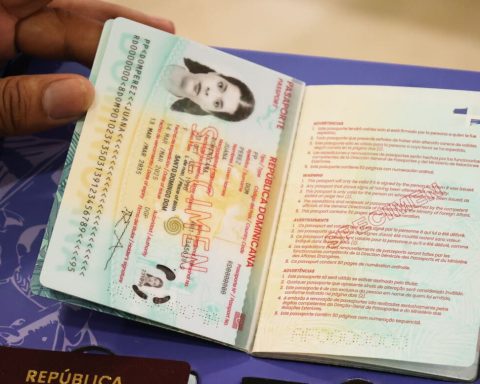The shortage of wheat flour, with the consequent increase in the price of bread and cookies on the market, has quickly reached its critical point. Added to the difficulties in manufacturing the products is the absence of an effective mechanism for importing the necessary raw material.
However, without offering solutions to the problem of hunger, which will worsen even more with the arrival of the new school year, or facilitating imports for self-employed workers, the Cuban Government, more inefficient than ever, has concentrated its efforts on a raid on food vendors.
“Any mipyme can, in theory, import products,” he assures 14ymedio a cookie producer in Sancti Spíritus. “Of course: as long as he substantiates it.” “What you can’t do is go to another country and bring a container of flour, for example, to sell it here to producers who need it for their businesses.”
“A month ago,” he continues, “when the disappearance of flour began, I went to Cubaexport to request the importation of the quantities I needed. But they cannot supply more than small quantities, so the deal with them does not work. The same thing happened to me with other state import channels, they are a problem.”
From Havana, they told him about someone who sold flour in quantities: “They told me it was legal, but of course, one always knows what there is.”
The producer says that several of them met and went to the Government to request permission to import a container of flour, which they would later distribute among all. “The officials ironed us,” he laments. “The justification was that a contract can be made as mipyme or self-employed worker, with the terms of the Government, but in a group it is not possible. ‘That’s reselling,’ they told us.”
The rise in prices is an expression of doubt and insecurity on the part of the self-employed, acknowledges the note, but when it has to point out a culprit, it looks for it among the producers themselves
Vendors from Sancti Spíritus have begun to approach official reporters on the street. “Now they say that as of next week we cannot sell any product with bread or wheat flour, what do you know about this?” they asked the author of a chronicle published in the newspaper Escambray about the shortage of this product in the province.
The journalist, who advances along the Sancti Spiritus boulevard overwhelmed by the “stratospheric prices of almost everything”, has to admit his ignorance when the citizens demand explanations from him in the face of the unstable flow of prices for bread and cookies.
Another vendor suspects that “the provincial government has banned its sale and we don’t want to risk it.” At twenty or twenty-five pesos, the packages of cookies exceeded 120, that is if you manage to “capture” some improvised trader who travels the streets by bicycle or on foot.
The rise in prices is an expression of doubt and insecurity on the part of the self-employed, acknowledges the note, but when he has to point out a culprit, he does not look for it in the state commerce bureaucracy, but in the producers themselves.
Once the “enemy” has been identified, Escambray attacks the private sector: “That if the war in Ukraine, that if the flour went up on the black market, that if they no longer get it so easily, that if the price of the dollar on the street exceeded 145 pesos… In short, a rosary of excuses to justify the price increase”.
The Government has not issued any ban, he says, it is rather a strategy of the private sector to “manipulate the people” and justify the price hike
Not satisfied with clarifying the official culprit of the increase in prices and disappearance of flour, the reporter goes to the provincial authorities. Ricardo García Hernández, coordinator of Programs and Objectives of the provincial government of Sancti Spíritus – the same person who declared the “innocence” of the officials who ordered the destruction of a heritage locomotive of 1917 in Jatibonico– makes his position clear: “There is no justification for the private sector to continue raising prices”.
The government has not issued any ban, he says, it is rather a private sector strategy to “manipulate the people” and justify the price hike.
“Here we have not talked about banning anything, we have not even restricted prices, although we draw attention to some abusive prices that we have detected in recent days regarding cookies and bread,” says the official, washing his hands.
He warns, yes, that the government has already released a pack of inspectors throughout the province, with instructions to “detect any illegality associated with the production of said foods.”
After concluding his meeting with García Hernández, the reporter ignores or pretends not to know why food prices rise in Cuba: “If the provincial government has not prohibited the sale of bread, cookies, sweets or any product containing bread or wheat, why then do some insist on constantly raising prices? Why is it so easy to continue squeezing the already battered pockets of the workers?
The authorities ask for more “creative resistance” and offer examples such as that of Gabriel Pérez, a young man from Guanabacoa who makes “alternative” flour.
As in Sancti Spíritus, other media State press agencies have turned to local governments to repeat the pantomime of an “official explanation”. In each case, the official invokes the note published by the Ministry of Internal Trade on August 23: the shortage is due to a “recruitment of the blockade, the current international logistics crisis and the country’s financial limitations”, which has limited its import of wheat.
On the other hand, the authorities call for more “creative resistance” and offer examples such as the Gabriel Perez, a young man from Guanabacoa who makes “alternative” flour. Along with his sisters, Pérez sold an apartment in Havana and bought land to “start in the flour business.”
The peasants of the area taught them some cultivation techniques that they later took advantage of to make their brand, Bacoretto. Its product, which the Government exhibits as an emblem of self-employment, manufactures flour from carob, rice, cassava, coconut and banana. “It’s the same thing that has always been done, many years ago, in eastern Cuba and in the countryside,” admits Pérez, to reassure his clients.
While the official press interviews “inventors” of flour and seeks to absolve the Government of all blame, Cuban mothers continue to worry about the imminence of the school year and the impossibility of offering bread as a snack to their children; the family continues to pay for the bags of cookies at inconceivable prices and the producers try to maintain a “low profile” in front of inspectors who, more than criminals, are looking for scapegoats.
________________________
Collaborate with our work:
The team of 14ymedio is committed to doing serious journalism that reflects the reality of deep Cuba. Thank you for joining us on this long road. We invite you to continue supporting us, but this time becoming a member of our newspaper. Together we can continue transforming journalism in Cuba.
